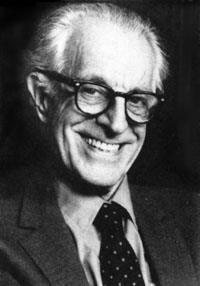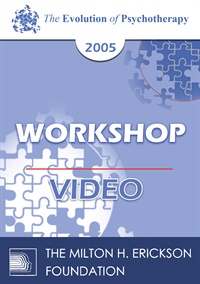EP05 Workshop 01 - Rational Emotive Behavior Therapy - Albert Ellis, PhD
- Average Rating:
- Not yet rated
- Topic Areas:
- Workshops | Rational Emotive Behavior Therapy (REBT) | Psychotherapy | Love | Relationships | Sex and Sexuality
- Categories:
- Evolution of Psychotherapy | Evolution of Psychotherapy 2005
- Faculty:
- Albert Ellis, PhD
- Course Levels:
- Master Degree or Higher in Health-Related Field
- Duration:
- 2:10:28
- Format:
- Audio and Video
- Original Program Date:
- Dec 07, 2005
- License:
- Never Expires.
Description
Description:
Dr. Ellis will present cognitive, emotional and behavioral techniques to help men and women in their sex, love and marital relationships. He also will include therapy helping their interpersonal relationships in work situations.
Educational Objectives:
- To list four ways in which men and women block their achieving good sex, love, and marital relationships.
- To list four techniques of Rational Emotive Behavior Therapy to help couples improve their sex, love and marital relationships.
*Sessions may be edited for content and to preserve confidentiality*
Credits
Faculty

Albert Ellis, PhD Related Seminars and Products
Albert Ellis, PhD, was an American psychologist who in 1955 developed Rational Emotive Behavior Therapy (REBT). He held M.A. and Ph.D. degrees in clinical psychology from Columbia University and American Board of Professional Psychology (ABPP). He also founded and was the President of the New York City-based Albert Ellis Institute for decades.
He is generally considered to be one of the originators of the cognitive revolutionary paradigm shift in psychotherapy and one of the founders of cognitive-behavioral therapies.[2]
Based on a 1982 professional survey of US and Canadian psychologists, he was considered as the second most influential psychotherapist in history (Carl Rogers ranked first in the survey; Sigmund Freud was ranked third).[3][4] Psychology Today noted, "No individual—not even Freud himself—has had a greater impact on modern psychotherapy."[5]


